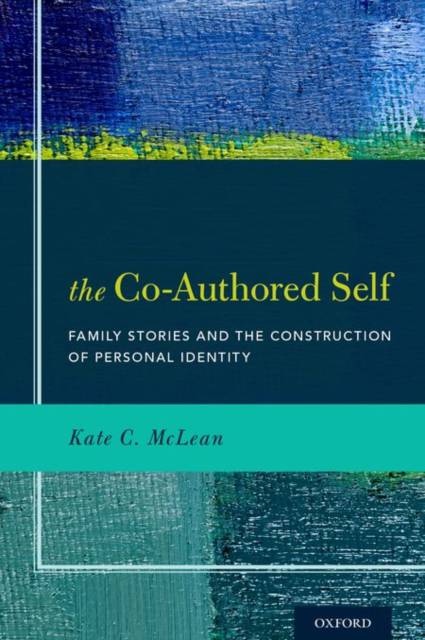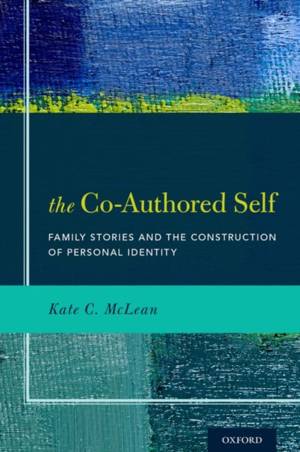
- Afhalen na 1 uur in een winkel met voorraad
- Gratis thuislevering in België vanaf € 30
- Ruim aanbod met 7 miljoen producten
- Afhalen na 1 uur in een winkel met voorraad
- Gratis thuislevering in België vanaf € 30
- Ruim aanbod met 7 miljoen producten
Zoeken
The Co-authored Self
Family Stories and the Construction of Personal Identity
McLean
Hardcover | Engels
€ 169,45
+ 338 punten
Omschrijving
Questions about identity are perennially intriguing, and vexing, to scholars and non-scholars alike. How do we know who we are? How do we define ourselves? How much are we the agents of our own identities, and how much are we defined by others? In The Co-authored Self, Kate McLean addresses the question of how an individual comes to develop an identity by focusing on the process of interpersonal storytelling, particularly through the stories people hear, co-tell, and share of and with their families. McLean details how identity development is a collaborative construction between the individual and his or her narrative ecology. She argues that family stories play a powerful role in defining identities, for better or for worse; it is through these family stories that the self takes on its earliest and most lasting form. Situating the process of identity development in adolescence and emerging adulthood, she shows through quantitative and qualitative data-with compelling narrative excerpts throughout-the ways in which families both support and constrain identity development by the stories they tell.
Alleen bij Standaard Boekhandel
+ 338 punten op je klantenkaart van Standaard Boekhandel
Beoordelingen
We publiceren alleen reviews die voldoen aan de voorwaarden voor reviews. Bekijk onze voorwaarden voor reviews.








